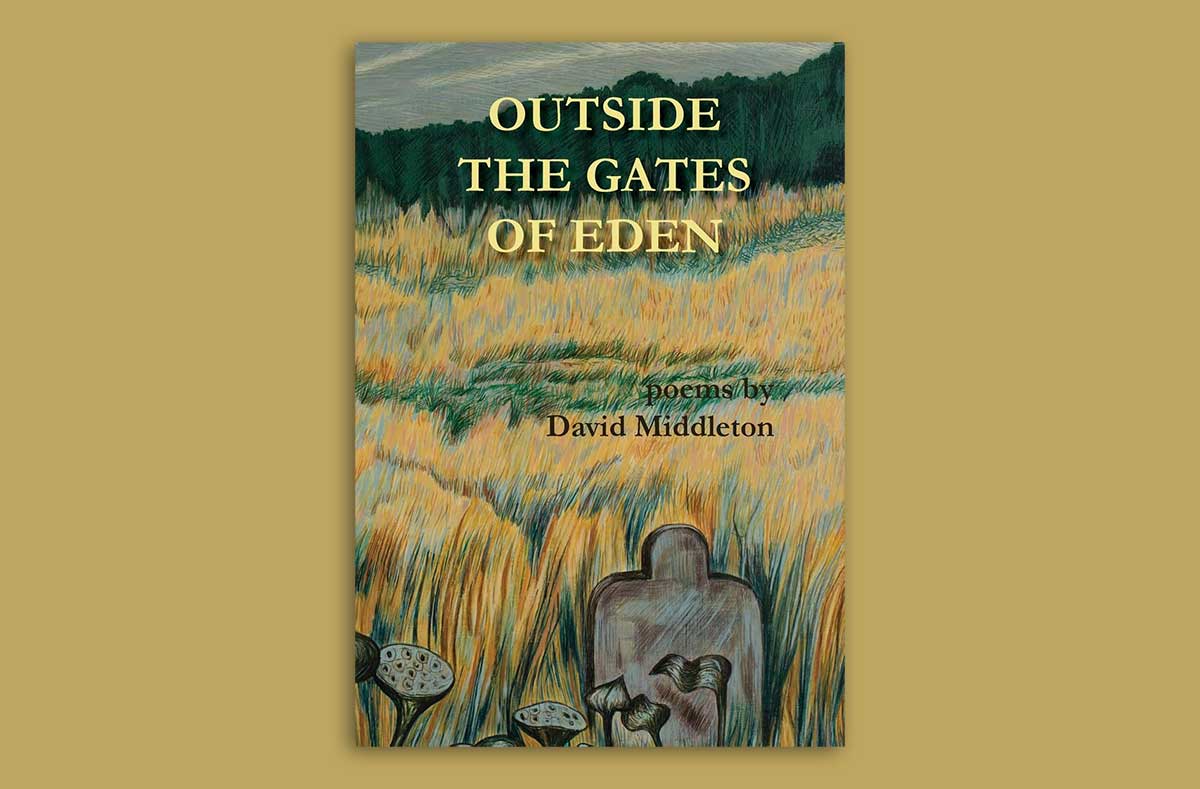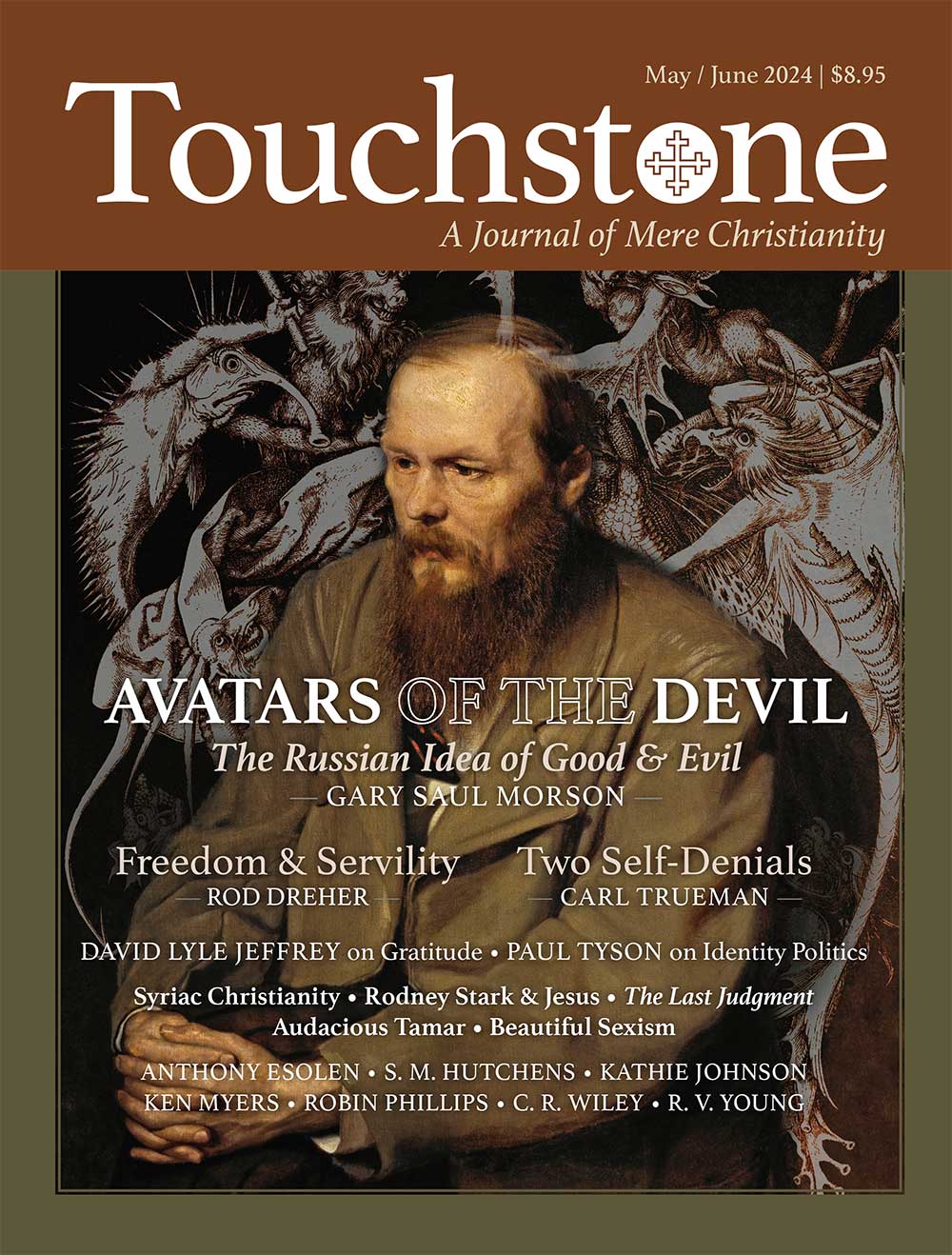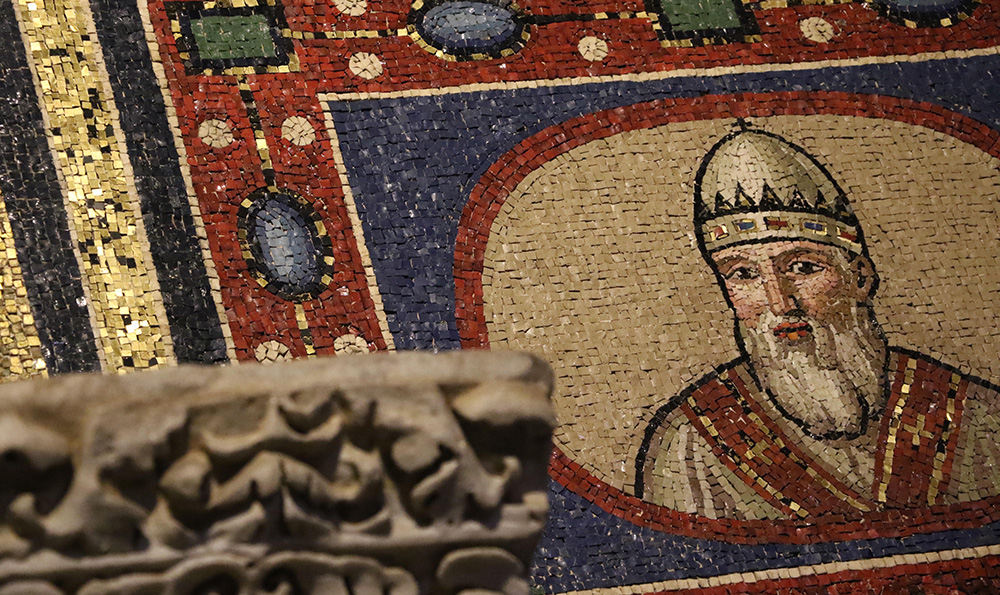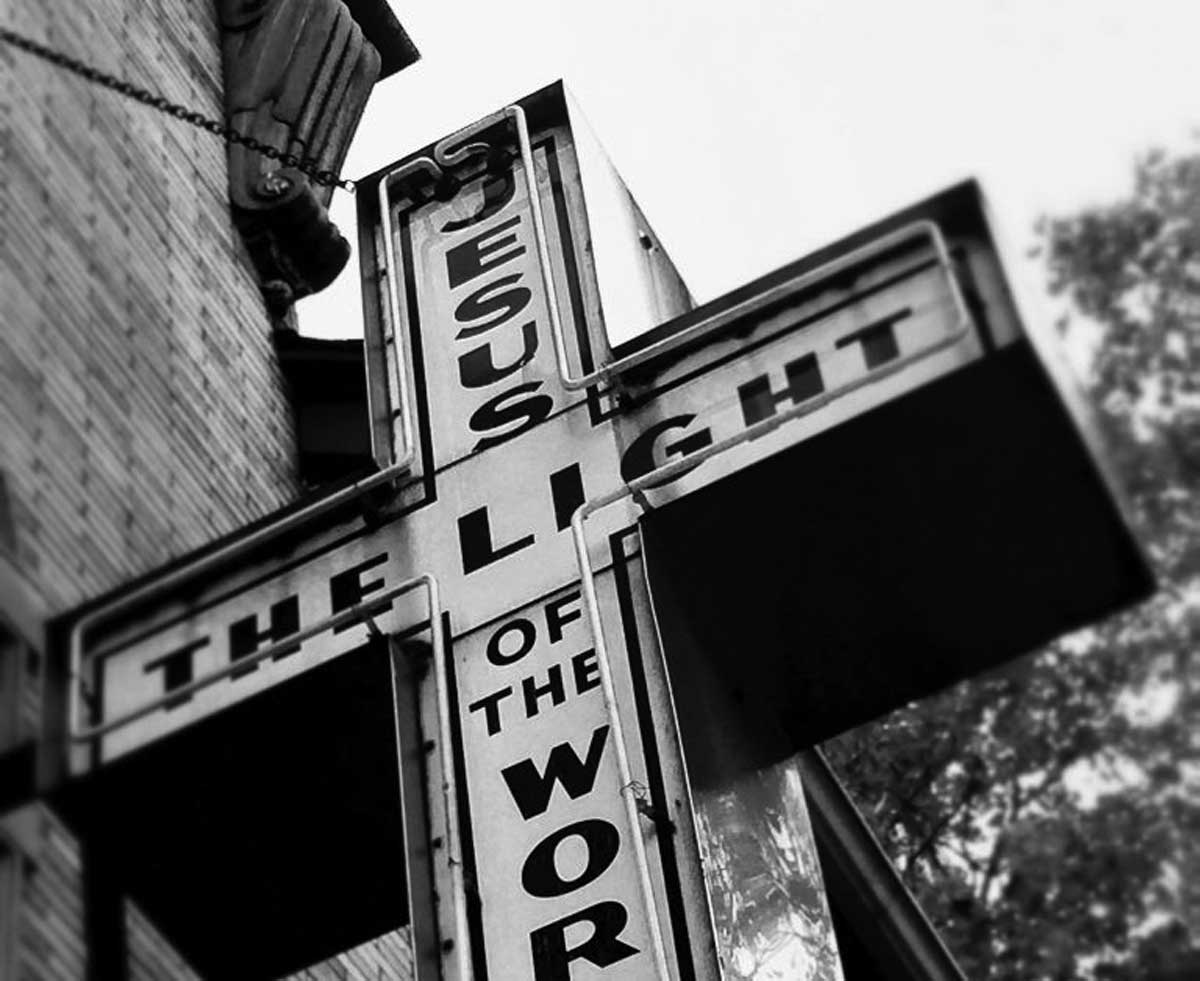A Christian Vision of the Secular World
Outside the Gates of Eden: Poems by David Middleton
When we mention Christian or religious poetry, we typically have in mind lyrical verse that deals with specifically biblical themes or expresses the experience of sin, forgiveness, grace, or repentance. The poems in George Herbert’s The Temple provide a good example, Gerard Manley Hopkins’s “Terrible Sonnets” another. The focus is on a man’s immediate and explicit encounter with God. Such poetry can be enlightening, edifying, even consoling. Nevertheless, it is important that we recognize the pervasive presence of God in our world and in our lives when we are not in the posture of worship or even consciously thinking about him. Poetry ought to help us do this, and David Middleton’s new volume is a striking example of how it can be done.
The title, Outside the Gates of Eden, contains an unmistakable biblical reference, but most of the poems in the book would not strike most readers as “religious” or “Christian” in any obvious way. The more attentive and reflective the reader, however, the more decisively a pattern of Christian awareness will emerge. Middleton is a particularly acute Christian observer whose poetic vision is informed by his Christian faith even when he is not addressing a topic from a Christian angle or with a definite Christian precept in mind. God created the world—the reality that we inhabit—through his Word, and it was with the Incarnation of his Word that he redeemed it. A poet who is faithful to his vision of experience will offer a true representation of the creation to the extent that his perceptions are accurate and profound. For this reason, it is worth every Christian’s time and effort to acquaint himself with poetry in order to share the vision of a powerful imagination. If that imagination is informed by grace—so much the better.
David Middleton provides a novice with an excellent means of learning to read contemporary poetry. The meaning of his verse is not obscured by tortuous syntax, esoteric diction, or erudite allusion. He does not dazzle his reader with figurative pyrotechnics or lavishly contrived labyrinths of imagery. As a result, his work may appear deceptively simple, but this is its advantage for a reader who will be discouraged if even determining the literal, surface meaning of a poem is a challenge. Most readers will know what most of the poems “mean,” in the obvious sense, the first time through. But read again, and yet again, and the rhythm and the verbal music of the verse will reveal more and more the beauty and subtlety of his carefully modulated language.
A Symbol for Fallen Man
Outside the Gates of Eden begins with “Night Watchman at the Zoo,” which would seem to be an altogether “unpoetical” subject; but Middleton infuses the poem with a quietly humorous irony, which, on further reflection, manifests a strand of poignant nostalgia. It slowly becomes apparent that the zoo is modern man’s sad attempt to reconstruct the experience of the paradisiacal garden forfeited for us by Adam and Eve. Equipped with “flashlight, cell phone, pistol,” the night watchman is the less-than-angelic guardian of this manmade Eden from the depredations of thoroughly practical thieves:
I watch for quiet intruders who provide
Stolen calves and cubs to the roadside zoos
Where they will languish, maddened in their cells,
Or offer them as curios to those
So rich and bored they need menageries,
Pure spectacle, a conversation piece.
For the dedicated watchman, his public zoo (the poem’s subtitle is “Audubon Zoo, New Orleans, Louisiana”) is a good-faith attempt to restore, in some measure, the Edenic relationship between man and beast, not the pure exploitation of carnival and collector. The toys children take home from the gift shop—“Stuffed lions smiling wide, soft cuddly bears, / Limber, rubber snakes showing rubber fangs, / A windup ape beating its plastic chest”—mark the innocence of the enterprise.
Still, the best intentions of men can provide only an unnatural life in “artificial habitats”:
Savannahs, caves, pools, jungles, waterfalls—
A wilderness constrained by moat and bar,
A red wolf kept from swamp hares by the wire,
A cheetah’s caged eyes fixed on still gazelles.
The vigilant watchman sees himself as “the heir / Of Adam who tamed animals with names,” but most of the beasts “live in a state beyond recall,” “Their habitats shrunken to this small space, / Too captive-bred ever to hunt again.” The somewhat pretentious speaker of this poem is mildly comic, but he is not merely risible and certainly not contemptible. His aspirations are noble, but they exceed the possibilities of his job. In this, he is an apt symbol for fallen man: created in the image and likeness of God, his nature and his aspirations are noble, but marred by sin; his efforts to recover Eden, unless transfigured by grace, result at best in a well-run zoo. The unstated but unmistakable text lying behind this poem is Romans 8: “For the creation waits with eager longing for the revealing of the sons of God.”
R. V. Young is Professor of English Emeritus at North Carolina State University, a former editor of Modern Age: A Quarterly Review, and the author of Shakespeare and the Idea of Western Civilization (Catholic University of America Press, 2022). He and his wife are parishioners at St. Ignatius of Antioch Church in Tarpon Springs, Florida. They have five grown children, fifteen grandchildren, and three great-grandchildren. He is a senior editor of Touchstone.
subscription options
Order
Print/Online Subscription

Get six issues (one year) of Touchstone PLUS full online access including pdf downloads for only $39.95. That's only $3.34 per month!
Order
Online Only
Subscription

Get a one-year full-access subscription to the Touchstone online archives for only $19.95. That's only $1.66 per month!
bulk subscriptions
Order Touchstone subscriptions in bulk and save $10 per sub! Each subscription includes 6 issues of Touchstone plus full online access to touchstonemag.com—including archives, videos, and pdf downloads of recent issues for only $29.95 each! Great for churches or study groups.
Transactions will be processed on a secure server.
more on poetry from the online archives
more from the online archives
calling all readers
Please Donate
"There are magazines worth reading but few worth saving . . . Touchstone is just such a magazine."
—Alice von Hildebrand
"Here we do not concede one square millimeter of territory to falsehood, folly, contemporary sentimentality, or fashion. We speak the truth, and let God be our judge. . . . Touchstone is the one committedly Christian conservative journal."
—Anthony Esolen, Touchstone senior editor











